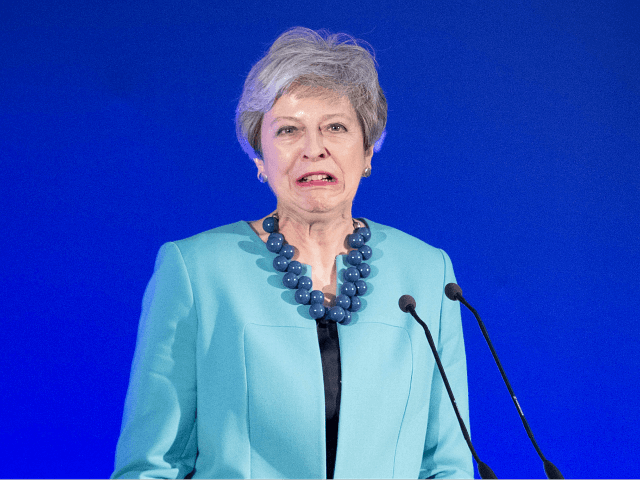The United States reportedly offered to organise a joint naval security operation to protect British shipping in the Persian Gulf, but Theresa May turned it down because she “didn’t want to upset the Iranians” or the EU.
Despite clear indications that the Iranian regime intended to target British shipping in the region in retaliation for Gibraltar’s detention of an Iranian tanker accused of transporting crude oil to Syria in defiance of international sanctions, Mrs May is said to have declined “repeated overtures” to establish a British-American security operation, because “it would look like the UK backed Washington’s wider hardline stance on Iran”.
While the Trump administration has pulled out of the Iran nuclear deal and imposed sanctions on the theocratic regime, the United Kingdom has followed along with the EU in trying to keep it on life support — despite the Iranians’ more or less naked belligerence towards them.
“May and [Foreign Secretary Jeremy] Hunt declined an offer the America last week [sic] to join them in a maritime coalition for security in the [Strait of Hormuz]… they wanted to build an international effort,” said a Whitehall source quoted by Sun political editor Harry Cole.
“It’s a major fuck up when it was blindingly obvious we were vulnerable. Weak politics. In light of the threat it was an act of folly, just pathetic,” they added.
“I think there are genuine questions to be raised right now about the British Government’s behaviour, [and] I say this as a supporter of the Government,” commented Iain Duncan Smith, the former Tory leader and Work and Pensions Secretary who now chairs Boris Johnson’s leadership campaign, after Mrs May’s decision to rely on the much-diminished Royal Navy until an alternative “internationalised” operation could be put in place resulted in the Iranians capturing a tanker in Omani waters.
Contradicting official claims a concrete offer of U.S. help had not been made, the senior Tory insisted that “Britain was offered whatever assistance is necessary to protect British ships and commanders out there were willing to help.”
“The Government failed to take them up on the offer and the reason was that we didn’t want to upset the Iranians,” he claimed.
“They made a major miscalculation. It was a big misjudgement and it goes all the way to the top.”
Despite the British government’s apparently misguided coldness towards the U.S. before losing the tanker, President Trump maintained his willingness to help in the incident’s immediate aftermath, stressing the importance of the British-American alliance and warning that Iran was in “big trouble”.
The British government has maintained a weak posture, however, failing to impose sanctions and ruling out a military solution to the crisis — partly because of the massive naval cuts Mrs May and predecessor David Cameron have presided over, which have left the Royal Navy “too small to manage our interests across the globe”, according to Defence minister Tobias Ellwood.
Indeed, Boris Johnson’s rival to succeed Mrs May as Tory leader, Foreign Secretary Jeremy Hunt, is said to have asked the U.S. government not to make aggressive statements about the tanker incident.

COMMENTS
Please let us know if you're having issues with commenting.